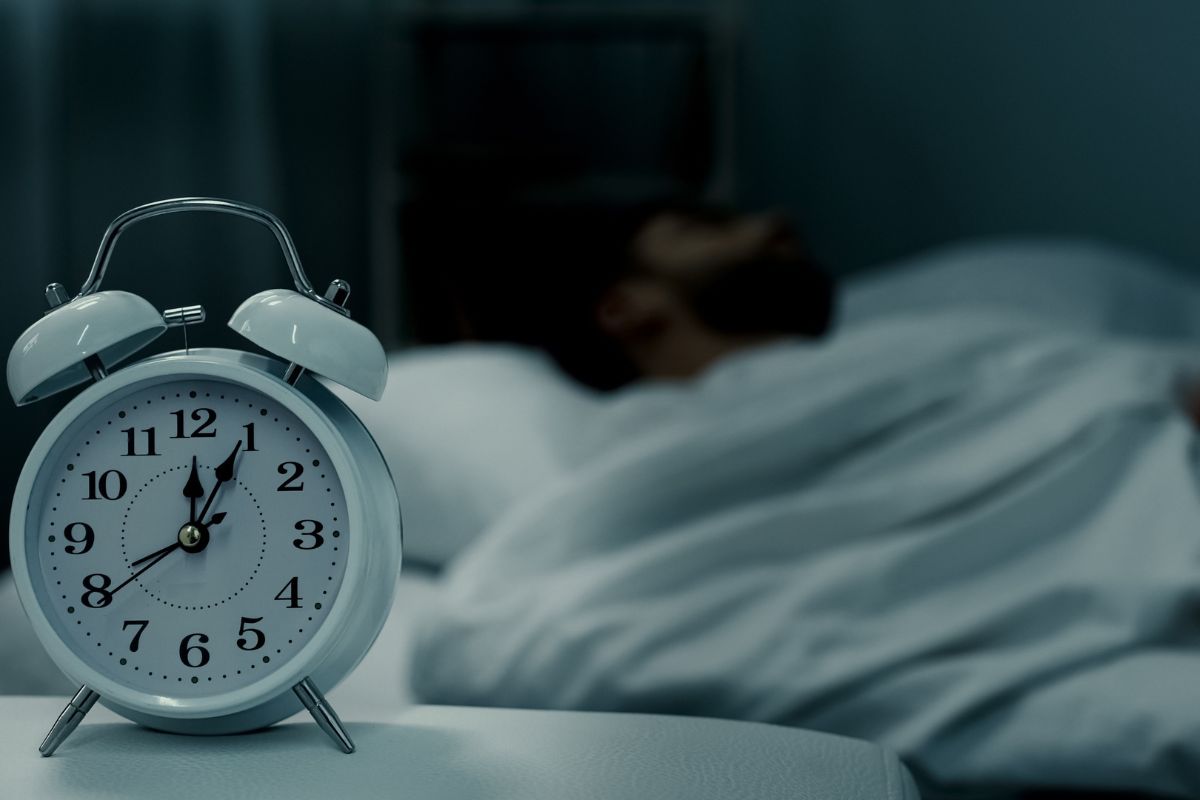We have all had those days. We go to bed early with the best intention of getting a good night’s sleep, but it just doesn’t happen. We lie down to be met with anxiety, worries, tossing and turning, rapid heartbeat and a nervous feeling in our chest. There’s nothing worse than going to bed and not being able to sleep. And getting a bad sleep can really take a toll on our mood. Sleep and mental health are more interconnected than we think.
When an individual doesn’t sleep properly for multiple days in a row, they enter into something called “sleep debt.” A 2018 study found that there is a direct correlation between sleep debt and mental health. The amygdala, which helps regulate emotions and “plays an important role in the mechanisms of sleep,” has trouble doing its job when we are sleep deprived. “Sleep debt reduces the ability of the media prefrontal cortex (MPFC) to suppress activity in the amygdala, leading to emotional instability,” the study explains. Sleep deprivation also creates a “functional deficit” between the amygdala and other parts of the brain, “which can result in decreased mood and can cause the amygdala to have heightened responses to negative stimuli.” This means that the next day, the body will have a harder time dealing with stress and our negative emotions might be intensified.
How to have a good night’s sleep from experts:
Create structure
- According to research from the American Journal of Lifestyle medicine, “a bedtime routine is associated with… improved sleep habits.” Routine is the name of the game here, and you’ve got to set boundaries with yourself. Scrolling endlessly on Instagram until 2 a.m. is not going to help you get a good night’s sleep. Set some rules down. For example: past 9 p.m. put the phone away and listen to music instead.
- Sleep medicine expert Michelle Drerup suggests not using your phone before bed and watching your screen time. “Checking your phone stimulates your brain … you’re more active and awake. Even just a quick check can engage your brain and delay sleep,” said Dr. Drerup.
- If you have to be up late finishing a paper, try to use blue-light glasses. Or, on your phone, you can adjust the colour filter to red, which also helps block blue light.
- Put alarms on your phone. Have the alarm remind you that you need to get a good sleep if you lose track.
Use tools
- Did you know having clean sheets on your bed can actually help you sleep better? The National Sleep Foundation’s Bedroom Poll said, “78% of people said they were more excited for bed when their sheets had a fresh scent, and 71% of people described getting more comfortable sleep with fresh sheets.”
- Research shows that scents like eucalyptus and lavender offer great levels of relaxation. Eucalyptus helps regulate the nervous system and lavender can improve sleep disturbances patterns and suppressing anxiety. Plus, who wouldn’t want to doze off in a lovely scented room? Try buying an aromatherapy diffuser, and turning it on before going to bed to start winding down. Or, take a hot bath and put a couple drops of eucalyptus or lavender for a nice aromatherapy session.
- Previous studies have shown that having a cool temperature can regulate the sleep/wake cycle. The study argues that “increased nocturnal core temperature alone may disrupt sleep.” Therefore, having your room colder before bed can help you get a better night’s sleep. Try opening up the window before bed or buying a cooling fan.
Get to the bottom of it
- If there’s something pressing going on in our lives, it can keep us up at night. It’s best to sit down with yourself and address the thoughts. Previous research shows that writing out your worries can help you have a better night’s rest. The American Journal of Lifestyle Medicine suggests that individuals write very specific to-do lists for the next day for five minutes versus writing about completed tasks.
- Saying affirmations before bed can be an excellent way to control your mind. Chelsie Rohrscheib, Ph.D. neuroscientist in sleep and mental health says, “Affirmations are positive statements repeated daily to replace existing thought that may be untrue or negative.” Doing affirmations daily before bedtime can help require our subconscious mind to be more positive and therefore can help us doze off to sleep faster. You could say affirmations like “I am opening my mind to peace and that is where I will find sleep”, “right now the answer to my problems is restful sleep” or “I deserve to sleep tonight so I am refreshed for tomorrow.” Those lines are a step in the right direction to keep your mind at bay so you can drift off at ease.
- Studies suggest breathing is another great way to release negative thoughts. Techniques of slow deep breathing can help treat insomnia. Breathe in positivity, breathe out negativity. Allow the affirmations you made for yourself to flow in unison with the breath. As you relax, begin to repeat the affirmations you made in your mind over and over again until you eventually drop into deep rest.
Sleep and good mental health go hand in hand. It’s important to treat our bodies with love and give it the rest it needs. By doing this we are bound to be one step closer to feeling better and getting the good night sleep we deserve.





